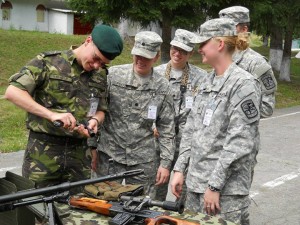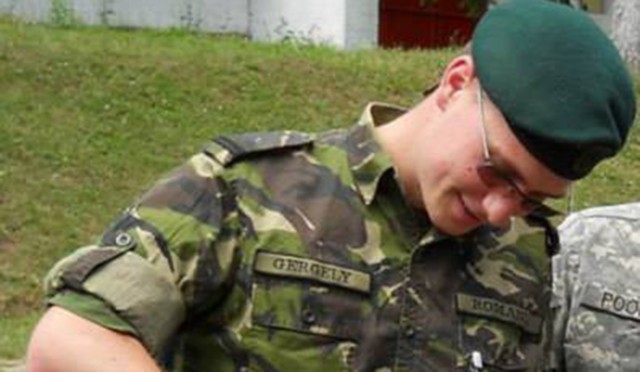
Reporter
Every year, the U.S. Army provides hundreds of ROTC cadets with the opportunity to visit 40 different countries for three weeks. The cadets can immerse themselves in a foreign culture and learn a new language through the Cultural Understanding and Language Proficiency program, or CULP.
According to the U.S. Army’s Cadet Command website, CULP participants are exposed to everyday life in different cultures, which intensifies language studies. The Cadet Command states that the CULP program helps produce commissioned officers that possess the language and cultural skills required of an Army officer in the 21st century. Any Army ROTC cadets who wish to participate in CULP should contact their command for more information on the application process.
The Cadet Command website states that overseas immersions help educate future leaders in ways the classroom cannot.
Houston junior Anthony Rifaat and New Braunfels junior Tara Hutchison, both ROTC cadets, participated in the Army’s CULP program.
Hutchison spent most of her time in Miercurea Ciuc, Romania with the Romanian Army’s 24th Mountain Battalion. She said her favorite part of her trip was spending time with the Romanian officers.
“I really like the relationships we built with the Romanian officers,” Hutchison said. “We spent a lot of our free time exploring the city outside the base with the them.”
Rifaat traveled to Lithuania and said his favorite part of the CULP experience was learning about the local culture.
“I had a lot of free time to explore the local culture —a lot of time to get perspective,” Rifaat said.
Hutchison said she also gained a lot of perspective.
“A major life lesson I learned from CULP was that although the world is culturally diverse, we are all people with the same desires and necessities in life,” Hutchison said. “Every person around the world wants a family, their health, food on the table, and to live a life with minimal worry. We are all the same people.”
U.S. cadets participating in CULP are responsible for teaching English and U.S. culture to the host nation’s CULP participants.
Hutchison said she taught English to the Romanians in the morning then trained with them in the afternoon. Hutchison’s training with the Romanians included horseback riding, a live-fire range, an armored personnel carrier mission and training with Romanian tanks. Hutchison said her favorite part of training was shooting Kalashnikovs and machine guns during the live-fire range.
Rifaat spent most of his time teaching English to the Lithuanian cadets at their military academy in Vilnius.
Rifaat said some of his most eye opening experiences happened while teaching English to the cadets. Rifaat would start a conversation with his students in English and quickly learned about the economic hardships in Lithuania from their responses.
“Anybody could read a Wikipedia page on Lithuania’s economic situation, but it’s a completely different experience when you are directly listening to them,” Rifaat said.
On the weekends, Rifaat volunteered for community service, mainly in orphanages.
Rifaat and other U.S. cadets spent a lot of their free time with the Lithuanian orphans even though they didn’t have a translator.
“The kids didn’t speak English so we played sports to connect,” Rifaat said.
When Rifaat wasn’t volunteering with orphans, he was visiting Lithuanian castles, monuments and museums.
“The memories of the three weeks spent in an unusual country will last a lifetime,” Rifaat said.
Rifaat and Hutchison both said that they didn’t learn much of their host country’s language, but they agreed that learning about the people and their culture was invaluable because Lithuania and Romania are part of NATO.
“I realized how much these other countries can help us,” Hutchison said. “Romania has troops in Afghanistan. I could run into them again.”
Hutchison and Rifaat said their hosts showed them great hospitality. Hutchison stayed in a hotel close to the base and Rifaat stayed in a room at the military academy in Vilnius.
“I feel so grateful for the chance to experience a different side of the world,” Rifaat said. “This trip pushed me out of my comfort zone and gave me the once in a lifetime opportunity to give and receive knowledge that I will never forget and will surely use later on in my career as an Army officer.”



